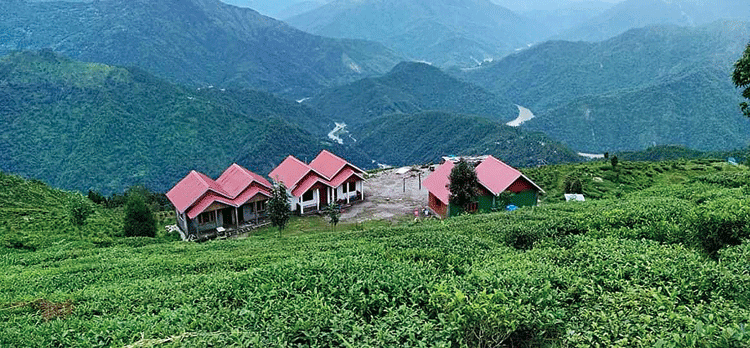Stakeholders of Bengal’s tea industry have welcomed the state government’s decision to relax land rules to facilitate tourism and setting up of alternative businesses in estates that can also generate employment for the local population.
The government had introduced a tea tourism policy in 2013 allowing gardens to use a maximum of 5 acres of land for tourism. According to the policy, construction could also be carried out on 1.5 acres if the garden is in the plains and on 1 acre if the estate is in the hills.
Because of these clauses, the tea planters’ fraternity had felt discouraged to take up tourism projects in their gardens, pointing out that the stipulated land was too less to initiate any such project. Another section of planters had pointed out that they needed a policy that could provide options for launching commercial activities other than tourism.
Last November, the government decided to increase the land ceiling for tourism projects and other specific commercial purposes to 15 per cent of the total land available with a garden, subject to a maximum of 150 acres.
The government also came up with the Tea Tourism & Allied Business Policy 2019, allowing construction on 40 per cent of the land earmarked for tourism and other commercial activities.
Along with tea tourism, the government has allowed wellness centres, educational institutions, hospitals, cultural, recreation and exhibition centres, horticulture, floriculture, medicinal plant cultivation, and food-processing and packaging units.
“This has opened a new vista for the tea sector and tea companies can now explore ways to utilise unused stretches of land in their gardens. There is always a potential for tea tourism but there are gardens that might think of getting into other allied activities in case they feel that the estates are not located in areas conducive to tourism. So far, they did not have any option other than tourism,” said Prabir Bhattacharjee, the secretary-general of the Tea Association of India.
In the new policy, the state has also mentioned that if any such project is taken up, there should be no reduction in the plantation area and no worker should be retrenched.
“It also mentions that out of the total employment generated through a project taken up in any garden in keeping with the policy, 80 per cent of the jobs should be provided to locals, particularly to the children of tea workers. It was a longstanding demand of tea garden youths to create employment opportunities for them. We believe that now that the new policy is in force, many tea gardens will draw up projects. This means, many of these youths will have the chance to get jobs,” said Mohan Sharma, the president of the Cha Bagan Trinamul Congress Mazdoor Union.
The policy also offers the option of shifting workers’ quarters in case contiguous land is needed, but simultaneously makes it clear that the project planned in the garden should be in consonance with ecological and environmental regulations.
“Any tea company intending to take up a project needs to apply before a screening committee that has been constituted at the state level. The committee will go through the project plan and then approve it. The company will have to sign an agreement with the district collector and start the project within three years from the date of striking the deal,” an official said.
Sumanta Guha Thakurta, the secretary of the Dooars branch of the Indian Tea Association, pointed out that the new policy had also created the scope for tea companies to join hands with investors and expert agencies.
“If required, a tea company can get fresh investments. This would encourage even those tea companies that would have otherwise found it tough to make investments on their own. Some of our member gardens have already planned to submit project ideas to the state,” he said.










